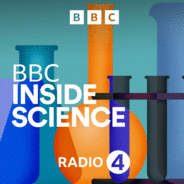Extreme weather is forcing communities to leave their homes and it's becoming a bigger and bigger issue. What can we do about it?
In this edition of BBC Inside Science, Gaia Vince and her guests discuss what climate displacement means for people all over the world. We hear from Diwigdi Valiente, a member of the Guna Yala people of the San Blas Islands in Panama, where whole communities have already begun to evacuate. Closer to home the experts consider the impact of rising sea levels on British coastal communities.
Guests are: Richard Betts, head of climate impacts at the UK Met Office and a professor at the University of Exeter; Lucy Easthope, professor in practice of risk and hazard at the University of Durham and a leading adviser on emergency planning and disaster recovery; Professor Guillermo Rein, an expert in fire science at Imperial College London; and Michael Szoenyi, head of flood resilience at Zurich Insurance. He explains why climate change has become such an important factor for business and individuals planning for the future – and why it’s essential we don’t leave big decisions about where we should live to the last minute.
Presenter: Gaia Vince
Producer: Clem Hitchcock
Content Producer: Alice Lipscombe-Southwell
Editor: Richard Collings

Wissenschaft & Technik
BBC Inside Science Folgen
A weekly programme that illuminates the mysteries and challenges the controversies behind the science that's changing our world.
Folgen von BBC Inside Science
641 Folgen
-
Folge vom 28.09.2023How will climate change affect where we can live?
-
Folge vom 21.09.2023What makes a healthy river?River health has captured the public imagination, particularly as overspills from sewers have been getting more attention in the media. But the condition of a river is so much more complicated than what flows into it from our water treatment systems. Agriculture, roads, how we use our drains, what we buy and even the medicines and drugs we take can all have an impact on our rivers and the plants and animals that call them home. So how are UK rivers doing? And what needs to happen to help those waterways that are drowning in pollution? Joining the BBC's Marnie Chesterton on stage at Green Man Festival in Wales to discuss all this is: Dave Johnston, team leader of environmental reporting at Natural Resources Wales, whose responsibility it is to monitor Welsh rivers. Joanne Cable, head of organisms and environment division at Cardiff University, whose focus is on biodiversity and what we at home can do to support our rivers. Simon Evans, chief executive of The Wye and Usk Foundation, who runs citizen science projects to support these two rivers local to the festival. Christian Dunn, wetland biologist at Bangor University, who is keen to explain the power of wetlands and has also done some surprising research into the river near Glastonbury Festival. Presenter: Marnie Chesterton Producers: Harrison Lewis and Hannah Robins Research: Liam Collins-Jones Studio Managers: Mike Cox and Duncan Hannant Editor: Richard Collings
-
Folge vom 14.09.2023Why do we want to go back to the Moon?Two plucky spacecraft, one Russian and one Indian, are currently blasting towards the Moon’s South Pole. Both Russia’s Luna-25 and India’s Chandrayaan-3 are due to touch down next week. They’re heading to that particular region of the Moon in order to hunt for water, the presence of which could have huge implications for our further exploration of the Solar System. Victoria Gill talks to Dr Becky Smethurst, an astrophysicist at the University of Oxford, to find out more. Victoria then heads to the Lake District to witness the release of water voles into the ecosystem. Next up, Professor Lewis Griffin, a computer scientist from University College London, tells us how bad we are at distinguishing between real and deepfake voices. He then reveals what implications this might have for scams. Finally, Dr Helen Pilcher tells us all about the intriguing ways that animals can bend time. You can find out more in her book, How Nature Keeps Time. Presenter: Victoria Gill Producer: Hannah Robins Content producer: Alice Lipscombe-Southwell Research: Patrick Hughes Editor: Richard Collings
-
Folge vom 07.09.2023Time is still ticking for the AmazonAfter decades of exploitation, time is running out for the Amazon rainforest. Eight South American nations came together this week for the first time in 14 years in an attempt to draw up a plan for a more sustainable future. The BBC’s South America correspondent Katy Watson sends us an update on the summit from Belém, Brazil. We also hear from Brazilian scientist Joice Ferreira who tells us why the Amazon is so important for the entire planet. Next up Victoria Gill finds out more about how British Sign Language is adding key scientific concepts to its dictionary in order to open up science communication to a broader community of people. There are still many words and phrases that have not yet been ‘signed’. Now did you know that the inhalers used by asthmatics emit a tiny amount of greenhouse gas with every puff? Victoria speaks to Dr Veena Aggarwal, a GP registrar and former member of Greener NHS, about whether the government’s new plan for environmentally friendly inhalers will help. Finally Victoria catches up with palaeoanthropologist Lee Berger. He’s written a book that tells a harrowing tale about his trip into a labyrinth of underground tunnels to find out more about an ancient human-like creature called Homo naledi. Presenter: Victoria Gill Producers: Hannah Robins and Harrison Lewis Content producer: Alice Lipscombe-Southwell Research: Patrick Hughes Editor: Richard Collings
